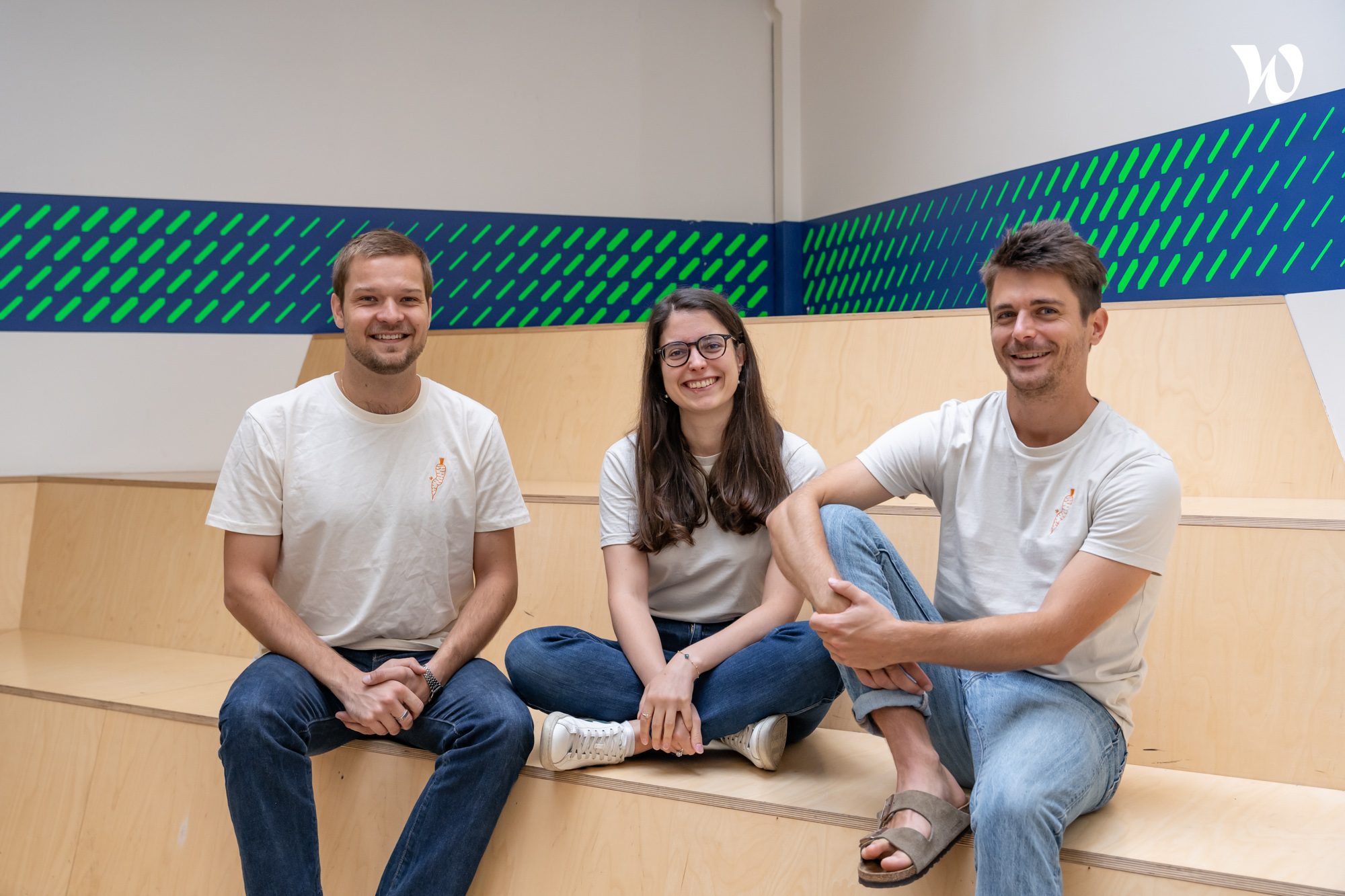Bene Bono is an operationally complex, logistically heavy, relatively low margin business. It’s operating in a market that has low barriers to entry and there’s no deep IP for defensibility. In other words, this ain’t for the faint-hearted or if you only love B2B SaaS. Fortunately, that’s not 2050. Solving the world’s biggest challenges requires a different approach. More patient, more aligned, and more diverse investing. That’s why we’re building a new breed of venture funding, so that we can support the businesses that will help build a fertile future. The journey will be long and hard. But if we succeed, it will be groundbreaking. To get a better understanding of the 2.0 VC model that 2050 is building, check out this article written by Marie Elekand.
We’ve all heard the scary numbers. ⅓ of all food produced ends up as waste. That’s about 1.3 billion tons per year, worth c.a. $1 trillion [1]. BCG has predicted an increase in food waste, reaching 2.1 billion tons by 2030. If food waste was a country, it would be the third-largest emitter of greenhouse gases, as they put it [2]. At the same time, over 840 million people are suffering from hunger [3]. Clearly something is fundamentally messed up with our society. Meanwhile, we’re seeing farmers from India to France demonstrate against them bearing the burden of new climate policies and the agricultural transition, free trade agreements and minimal or no profits. We should keep in mind that 29% of the global crop production comes from farms smaller than 2ha, and 59% comes from farms smaller than 49ha [4], so small farms are important voices.
If a monkey hoarded more bananas than it could eat, while most of the other monkeys starved, scientists would study that monkey to figure out what the heck was wrong with it. When human do it, we put them on the cover of Forbes.
Bene Bono isn’t going to save the world and solve all the above problems. But, they are addressing several of them, as well as others. And after getting introduced to the team, it was quickly obvious that we wanted to be part of their journey.
What’s so impressive is how far this young and rather green trio of co-founders, Grégoire Carlier, Claire Laurent and Sven Ripoche, has come. Having started in the height of the pandemic, less than 4 years ago, the team has executed extremely well and built a very well run business. The proof is in the pudding, the pudding being the revenue growth, growing margins, growing AOV, customer satisfaction, etc. That’s classified information, and the pudding is still cooking, but I can tell you it smells good.
In the US, it is estimated that 56% of the food waste happens at the upstream part of the production value chain, 16% at farms and 40% at manufacturing [5].
In France, the breakdown looks somewhat different. 10 million tons are lost, representing a theoretical value of €16 billion. 32% is lost at production level and 21% at processing. Either way, more than 50% of waste occurs upstream in the value chain [6].
In comes Bene Bono, as well as Misfits Market, Imperfect foods, OddBox, MatSmart and others, but let’s just focus on Bene Bono. They work directly with farmers, coops and food manufacturers to capture products that cannot be sold to traditional retailers due to irregular shape, size, colour, incorrect labelling, short expiry date or other reasons. Consumers get these products through a subscription service at a discount of up to 40%.
All fruits and vegetables (F&V) are organic and come from farmers either in France or Spain, and serve their local markets. This democratises accessibility to healthy, organic and more nutritious F&V to a wider market, as it’s sold at a discount to what it would be at an organic retailer. It also adds an additional revenue stream to farmers who are today pushed to the brink and often don’t make any profit on the food they produce.
The company has in a very short time span built a strong consumer brand in both France and Spain, with heavy emphasis on customer satisfaction through their app, which includes desired features such as a fully customisable order (not yet available in all areas), a growing list of SKUs, delivery calendar management, cooking suggestions and instructions, and much more.
The team has had to excel in the food logistics space, which they’ve done through their own network of 1.3k delivery hubs, such as restaurants, bakeries, flower shops and other small businesses, to optimise delivery times and costs. By leveraging centralised delivery hubs for free deliveries (customers pay for deliveries to their door), Bene Bono reduces its environmental footprint and optimises its operating margin. Another way in which the company is innovating is through its in-house warehouses, which have excelled in tools and operations adapted specifically to deal with “ugly” F&V – products that traditional warehouses cannot deal with as efficiently due to lack of standardisation. The company has also launched its own brand of groceries and is expanding that with new products by collaborating with food producers and using their leftovers that would otherwise have gone to waste, such as pasta leftover cuts.
In other words, we have been immensely impressed with the grit, drive and the vision of Greg, Claire and Sven, and the rest of the team, including key people such as CTO Marc Morel, CFO Thomas Borde, and Chief People Officer Christelle Vaugelade-Kalipé. They’re addressing several of the main challenges that are instrumental to building a fertile future and have done so with impeccable execution in what’s a highly complex business. If what they have achieved so far is anything to go by, we are in for a great ride with cross-disciplinary impact. With the new Series A raise, we expect to see Bene Bono strengthen its position as a major player in the fight against food waste. The company will recruit new talent for strategic positions, such as Director of Purchasing, Head of Product, and Lead Data Manager, expand its range of saved products to new categories, aiming for 1,000 references by the end of the year and further develop its private label (7 products today), and continue to reduce their environmental footprint by implementing reusable packaging and delivery by e-vehicles and bicycles.
[1] 25 Shocking Facts About Food Waste
[2] BCG – Closing the Food Waste Gap

